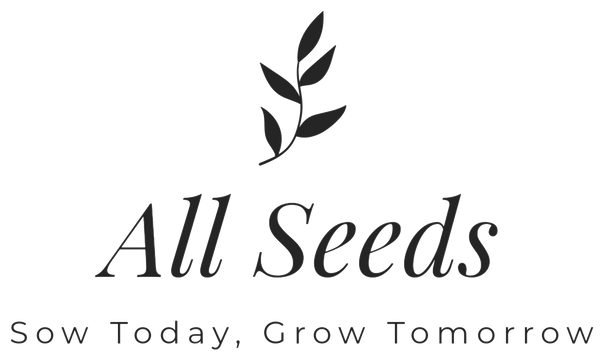
Picking The Right Compost For Your Seeds
Compost is more than just mud—it’s a carefully balanced growing medium that provides essential nutrients, structure, and moisture retention. The right compost will support delicate seedlings, prevent diseases, and encourage robust root development. Using the wrong compost, however, can result in poor germination and weak plants.
What to Look for in Seed Compost
Seed compost differs from multi-purpose compost or garden soil. Here are the key qualities to look for:
- Fine Texture: Seeds need a light, crumbly compost that allows delicate roots to grow easily. A coarse texture can block seedlings from breaking through the surface.
- Low Nutrient Levels: While nutrients are essential for plants, too much can overwhelm seedlings. Seed compost is formulated with just the right balance for early growth.
- Good Drainage: Excess water can cause seeds to rot, so your compost should retain moisture without becoming waterlogged.
Types of Compost for Seeds
1. Seed-Specific Compost
The best option for starting seeds is seed compost, such as John Innes Seed Compost or other seed-starting blends. These are specially designed with the fine texture and low nutrient content needed for successful germination.
2. Peat-Free Compost
As sustainability becomes more important, peat-free compost is an excellent choice. Many UK brands, such as Sylvagrow Peat-Free Seed Compost, offer high-quality, eco-friendly alternatives that work just as well as traditional peat-based products.
3. Multi-Purpose Compost
If seed-specific compost isn’t available, you can use a good-quality multi-purpose compost, such as Westland Multi-Purpose with Added John Innes. However, it’s best to sieve the compost to remove any large lumps that might obstruct germination.
4. Homemade Compost
For experienced gardeners, homemade compost can be used, but only if it’s finely sieved and free from pathogens. Mixing in a small amount of sand or vermiculite can improve drainage and texture.
Tips for Choosing the Right Compost
- Read the Label: Check that the compost is specifically marked as suitable for seeds or young plants.
- Consider the Plant Type: Some seeds, such as herbs or vegetables, may benefit from slightly different nutrient balances.
- Go Peat-Free: Many gardeners are now opting for peat-free compost to reduce environmental impact without compromising on quality.
- Buy Fresh Compost: Old compost may have degraded in quality or lost nutrients, so always choose fresh bags.
Enhancing Your Compost
To give your seeds the best start, you can mix the compost with:
- Vermiculite: Improves aeration and retains moisture.
- Perlite: Enhances drainage, especially in heavier composts.
- Sand: Helps with drainage and creates a lighter texture.
Common Mistakes to Avoid
- Using Garden Soil: Soil from your garden may be too heavy and can contain pests or diseases that harm seedlings.
- Choosing High-Nutrient Compost: Avoid compost marketed for established plants, as it can be too rich for delicate seedlings.
- Not Checking Moisture Levels: Compost should be moist but not waterlogged; overly wet conditions can lead to seed rot.
Frequently Asked Questions
Can I use multi-purpose compost for all my seeds?
Yes, but it’s best to sieve it for finer texture and combine it with vermiculite for better results.
What’s the best peat-free compost for seeds?
Look for brands like Sylvagrow or Dalefoot, which are highly regarded for their peat-free seed compost.
Can I reuse old compost for seeds?
It’s not recommended, as it may be depleted of nutrients and could harbour diseases. Fresh compost is always best for starting seeds.
Conclusion
Choosing the right compost is the first step towards growing healthy, vibrant plants from seed. Whether you opt for seed-specific compost, peat-free alternatives, or sieved multi-purpose compost, ensuring a fine texture, good drainage, and appropriate nutrient levels will set your seeds up for success. By investing a little extra care in your compost choice, you’ll enjoy stronger seedlings and a thriving garden when spring arrives!
